

Teilziel 4.5: SIMPLE PAST -
Verneinungen / Fragen
Verneinungen / Fragen
Verneinung im simple past
Ich kann Verneinungen im simple past bilden.
Fragen im simple past
Ich kann Fragen im simple past bilden.
Selbstcheck: Simple past - Verneinungen / Fragen
Aufgabe 1
Aufgabe 2
Aufgabe 3
Aufgabe 4
Aufgabe 5
Aufgabe 6
Aufgabe 7
Aufgabe 8
Aufgabe 9
Aufgabe 10
Aufgabe 11
Aufgabe 12
Aufgabe 13
Check-out

https://www.tutory.de/staatliche-realschule-bessenbach/dokument/rsb-lernwerkstatt-e5-unit-4-5-simple-past-verneinung-fragen
3. Simple past: Verneinung simple past
You don't need to copy the forms of
to be (was / were) anymore.
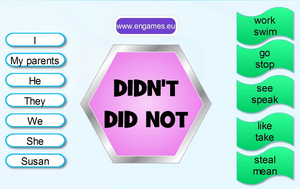
Example: All the pupils talked , but Tom didn't talk. (to) talk
1. All the children , but Betty . (to) run
2. Alex by bike, but John by bike. (to) come
3. Mr Brown the film, but his wife it. (to) see
4. Sally TV, but her parents TV. (to) watch
https://www.tutory.de/staatliche-realschule-bessenbach/dokument/rsb-lernwerkstatt-e5-unit-4-5-simple-past-verneinung-fragen

The four friends didn't have any money They their bikes with
so they to the cinema. them, but they a football.

They home They football for hours
so they to the park. and at the time.

They home late so They any dinner
they their favourite TV show. but they great fun.




https://www.tutory.de/staatliche-realschule-bessenbach/dokument/rsb-lernwerkstatt-e5-unit-4-5-simple-past-verneinung-fragen
4. Simple past: Fragen simple past
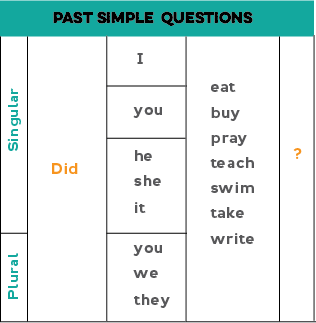
Deine Lehrkraft erklärt das neue Grammatikthema bevor du selbstständig am Lernpaket weiterarbeiten kannst.
(to) go (to) ride (to) play (to) go (to) watch (to) do
example: Did you play video games yesterday? - Yes, I did. / No, I didn't.
a) you swimming yesterday?
b) you karate yesterday?
c) you TV?
d) you your bike?
a) you like the film in the cinema yesterday?
b) Jalen and Ben with you? - No,
c) you go swimming, too? - Yes,
d) you have a muffin at the cafe? - Yes,
e) it a banana muffin? - No,
https://www.tutory.de/staatliche-realschule-bessenbach/dokument/rsb-lernwerkstatt-e5-unit-4-5-simple-past-verneinung-fragen
Deine Lehrkraft erklärt das neue Grammatikthema bevor du selbstständig am Lernpaket weiterarbeiten kannst.
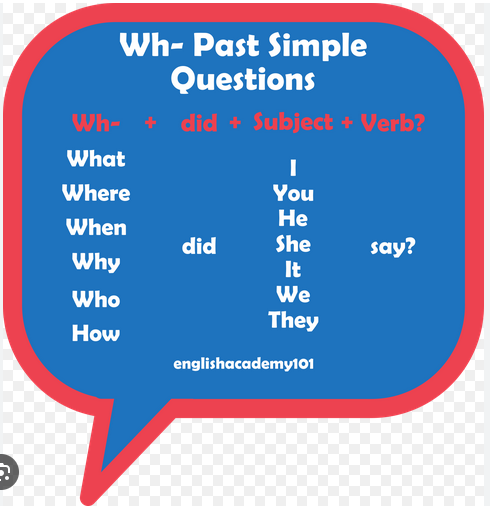
Use the words in the box:

example: I went to the cinema last weekend.
When did you go to the cinema?
a) I took my brother with me.
b) We got to the cinema by bus.
c) The tickets were 4.50 pounds.
d) We watched the film with Jason Statham.
e) We watched the film because I like him.
f) After the cinema we went to a cafe.
https://www.tutory.de/staatliche-realschule-bessenbach/dokument/rsb-lernwerkstatt-e5-unit-4-5-simple-past-verneinung-fragen




https://www.tutory.de/staatliche-realschule-bessenbach/dokument/rsb-lernwerkstatt-e5-unit-4-5-simple-past-verneinung-fragen
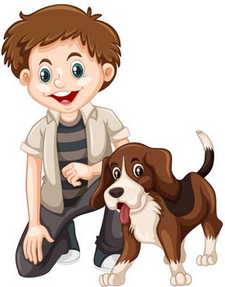
the verbs in brackets. Watch out: Some of the verbs are irregular!
Tim (get up) early. He (have)
breakfast and (do) his homework. Then he (go) to the park with his dog, Sam. In the park he (see) his neighbours Dave and Sally who (ride) on their bikes. They (come) back from the supermarket where they (buy) their breakfast. As the two (stop) to say hello to Tim, Sally (fall off) her bike because Sam (go) right in front of her bike. Sally (be) shocked because she (land) on her back on the ground. She (say) to Tom: Why didn´t you watch your dog? Tom (be) sorry. He (lift) her bike up from the ground and (help) her to get back on her feet. Tom (say) goodbye and (explain) to his neighbours that he (be) in a hurry. He (return) home and (get) ready for school. Sam likes walks and when Tim (leave) home for school, Sam (run) after him. Tim (not see) him until he (be) at the bus stop. Then Tim (see) Sam and (take) him back home. Tim (miss) his bus so he (be) very late for school yesterday.
https://www.tutory.de/staatliche-realschule-bessenbach/dokument/rsb-lernwerkstatt-e5-unit-4-5-simple-past-verneinung-fragen

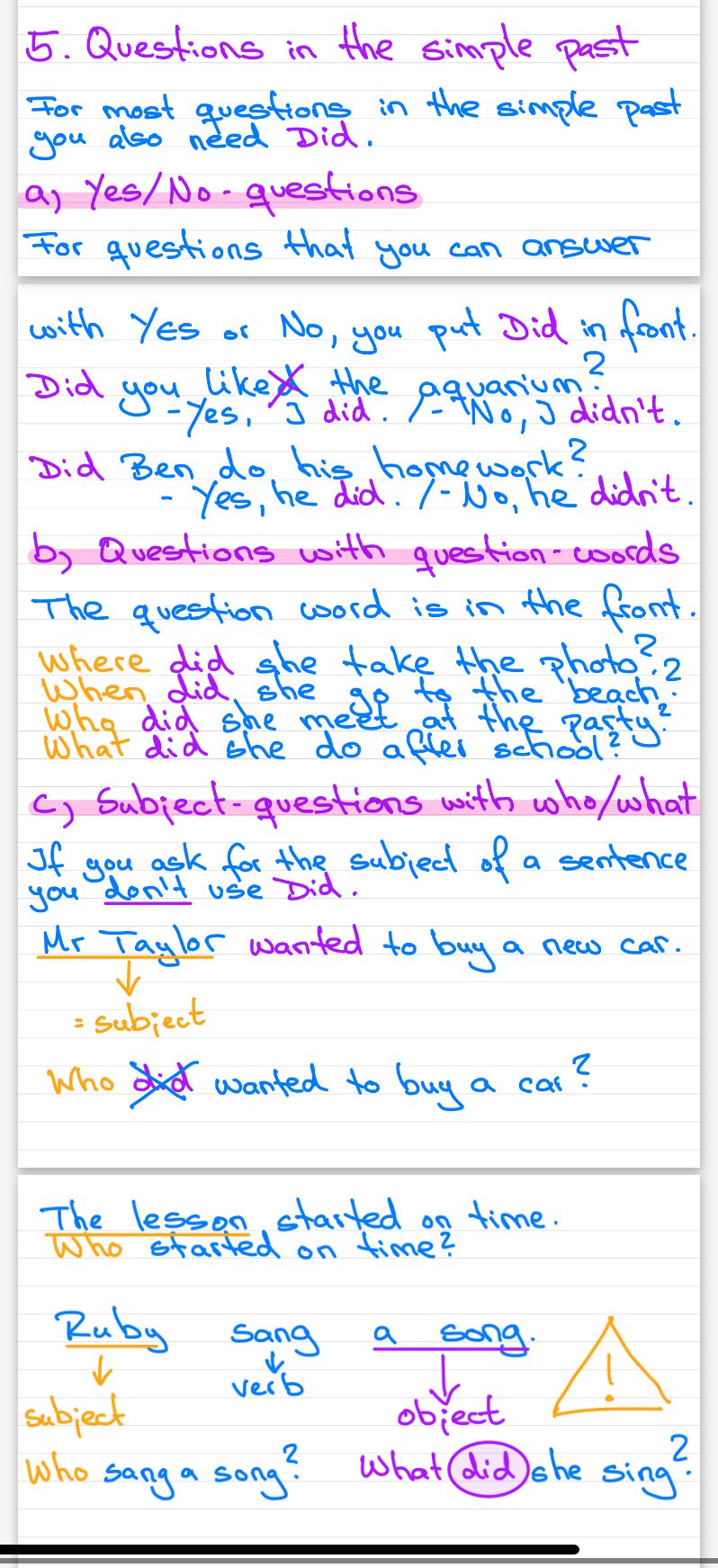
https://www.tutory.de/staatliche-realschule-bessenbach/dokument/rsb-lernwerkstatt-e5-unit-4-5-simple-past-verneinung-fragen


